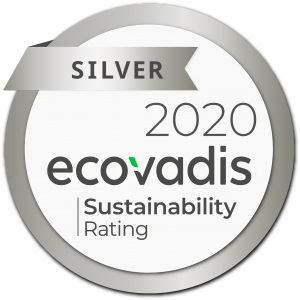Next Topic
Select SDGs to find out how we are taking action in support of the UN Substinable Development Goals
2022 ISRAEL CHEMICALS LTD. | ALL RIGHTS RESERVED

As pressure on natural resources increases and issues of social justice are becoming more visible, stakeholders expect companies to promote sustainability not only within their own operations, but also with their suppliers. Large companies such as ICL, which interact with thousands of suppliers around the world, are expected to engage suppliers on sustainability issues and to include sustainability considerations as part of their procurement decisions.
Through the TfS initiative, ICL is actively requesting its key suppliers to complete a CSR assessment and/or sustainability audit.
TfS introduced this globally applicable framework and tools – TfS Assessments and TfS Audits – to create transparency of the sustainability performance of chemical companies and their suppliers and to collaborate to continuously improve performance.
Unique to the TfS concept is that the results of TfS Assessments and TfS Audits are shared with all member companies, with consent of the supplier.
The TfS concept benefits both TfS member companies and suppliers. Suppliers receive less customer requests, there is less bureaucratic burden, and time and energy can be spent on improvement of sustainability performance.
In the first two years of ICL’s focused Sustainable Procurement Journey (2019 and 2020), the Company approached over 900 suppliers. By the end of 2020:
To better achieve the designated missions of the initiative, all TfS member companies define their target suppliers’ group, and then track and report on designated KPIs regarding their supplier engagement.
The targeted suppliers group selected by ICL for 2019-20 are the top spend suppliers (accounting together for 80% of the total 2019 spend) in areas of Raw Materials, Logistics & Packaging.
The goal set by ICL was to reach 55% of targeted suppliers with a valid EcoVadis CSR assessment (published no more than 3 years ago).
By the end of 2020, ICL reached a 67% coverage of the target suppliers- successfully achieving the annual target.
In 2020, there were 2 audits completed and 1 audit completed in 2021.
In accordance with ICL’s sustainability vision for 2030 and the guiding principles derived from our TfS membership commitment, the ICL Sustainable Procurement Program is based on well defined, measurable goals, guiding the Company’s activities and enabling its progress.
TfS targets are cascaded down from Total GPO target to GSM level (Success Factors).
In 2020, we achieved the following:
In 2021, we have set the following targets:
These three metrics ensure the continuity of the process: maintaining a pool of suppliers with valid CSR assessments and actively encouraging our suppliers to work on improvements:
As ICL (as well as other TfS members) must abide by the same standards as the company expects from its suppliers, ICL completed its second global EcoVadis assessment in 2020, ranking among the top 11% of 60,000 global ranked suppliers. ICL’s “silver” ranking of 62/100 was just below a gold ranking (>=65). See our score summary here. EcoVadis is considered a global leader in ranking sustainable practices of suppliers.

